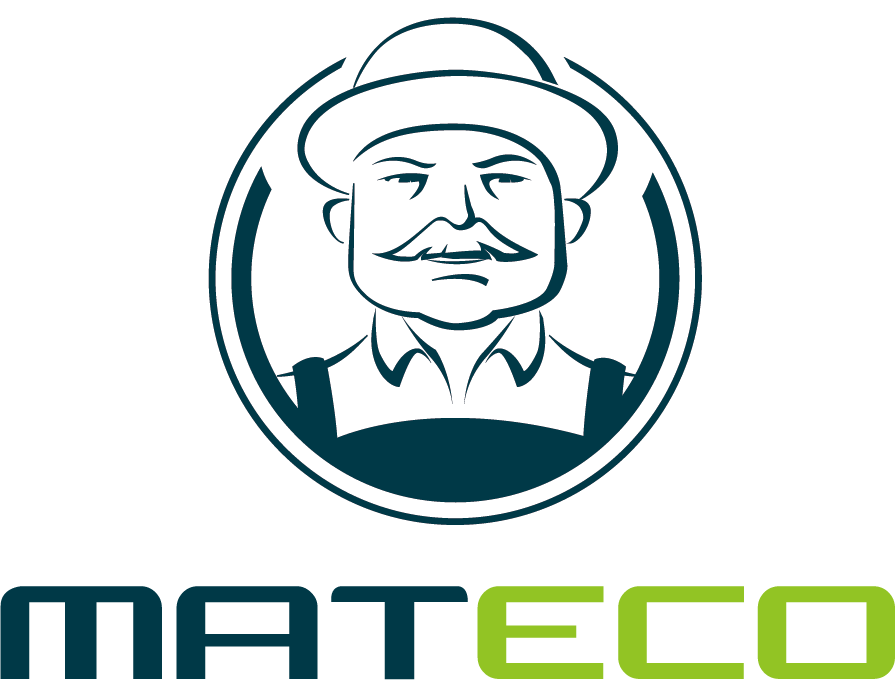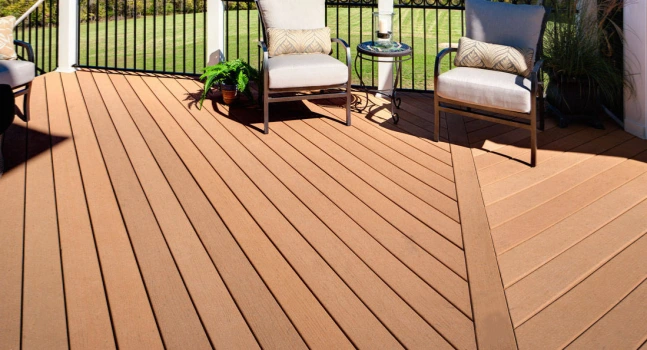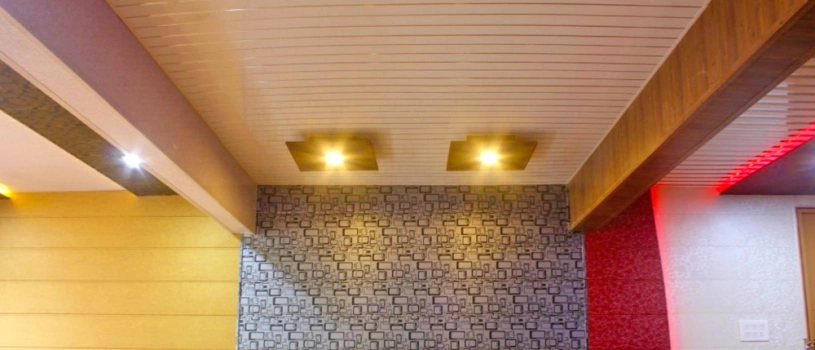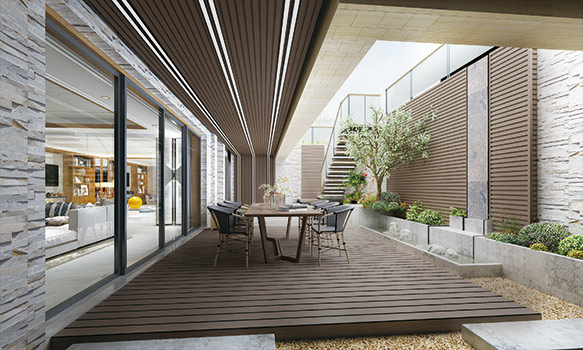What Are the Advantages and Disadvantages of PVC Ceiling Panels?
PVC ceiling panels are a popular choice for interior design due to their versatility, affordability, and ease of installation. However, like any material, they come with advantages and disadvantages. Here's a breakdown:
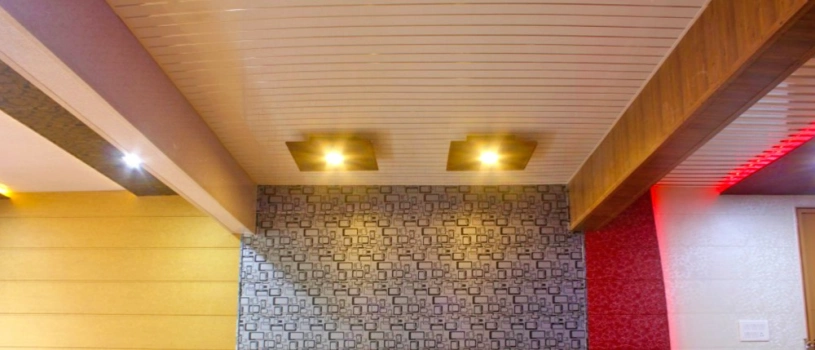
Table of Contents
Advantages of PVC ceiling panels
Durable and Waterproof:
PVC panels are highly resistant to moisture, making them ideal for bathrooms, kitchens, basements and other wet environments. They are also resistant to mold and mildew.
Low Maintenance:
These panels are easy to clean with just a damp cloth and don't need to be painted or sealed for long periods of time. They maintain their appearance without much effort.
Easy to install:
PVC ceiling panels are lightweight and have interlocking edges that make them easy to install. They can often be fixed directly to existing ceilings or metal frames.
Cost-effective:
PVC ceiling panels are relatively inexpensive compared to traditional materials such as plaster, wood or stucco. This makes them an affordable option for many projects.
Stylish:
PVC panels come in a variety of designs, colors and textures that mimic wood, marble or other materials, providing a customizable aesthetic.
Termite and insect resistant:
Unlike wood material, PVC resin are impervious to termites and other insects, extending their lifespan, especially in areas prone to pest infestations.
Flame retardant:
Some PVC ceiling panels are designed to be flame retardant, which can add an extra layer of safety, although they are not completely fireproof.
Lightweight:
Its lightweight nature puts less stress on the ceiling structure and makes it easier for you to install it.
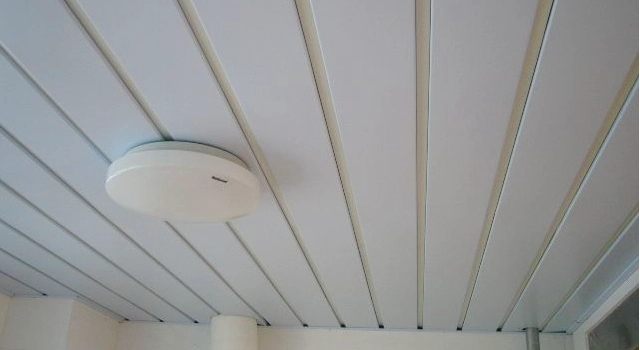
Disadvantages of PVC ceiling panels
Environmental issues:
PVC is made from plastic, which raises environmental concerns related to non-biodegradability and the release of harmful chemicals during production.Disposal of PVC can also be a problem as it is not easily recycled.
Limited heat resistance:
PVC is not suitable for areas exposed to high temperatures. PVC can bend or warp when exposed to high temperatures, making it unsuitable for placement near kitchen stoves or fireplaces.
Synthetic appearance:
Although PVC panels come in a variety of designs, some people may find them to look artificial or cheap when compared to natural materials such as wood or stone.
Longevity in harsh conditions:
While durable under normal conditions, prolonged exposure to UV rays (from sunlight) can cause the material to discolor or weaken. This limits their use in sunlit or outdoor spaces.
Health Risks:
When burned, PVC releases toxic fumes, including dioxins, which are harmful if inhaled. In the event of a fire, these fumes can pose a serious health risk.
Soundproofing:
PVC panels are often poorly insulated. For areas where noise must be reduced, other materials may `be more appropriate.
Structural strength:
Although PVC panels are lightweight and easy to handle, they are not as strong as other materials such as wood or gypsum board. They can break when subjected to a lot of pressure or if they are not handled properly during installation.
Aging and yellowing:
Over time, especially in areas exposed to indirect sunlight, PVC panels may fade or yellow. This can be a disadvantage in rooms that receive a lot of natural light.
Other ceiling panels options
If your requirements are higher, you may consider our WPC ceiling panels.
PVC Ceiling Panels: Best suited for cost-conscious projects, areas exposed to moisture, and spaces where easy installation and low maintenance are priorities.
WPC Ceiling Panels: A better option for those seeking a more natural appearance, improved strength, sound insulation, and eco-friendliness. They are particularly good for semi-outdoor areas and spaces requiring better durability.
Conclusion
PVC ceiling panels offer numerous benefits such as water resistance, low maintenance, ease of installation, and cost-effectiveness, making them a practical choice in many environments. However, they are not suitable for all applications due to environmental concerns, limited heat resistance, and their synthetic appearance. The decision to use PVC ceiling panels should consider the specific needs of the space, budget, and desired aesthetic.
If you are looking for a WPC manufacturer, MATECO will be your best choice.
WhatsApp: +86-13380085620
Email: info@matecowpc.com
